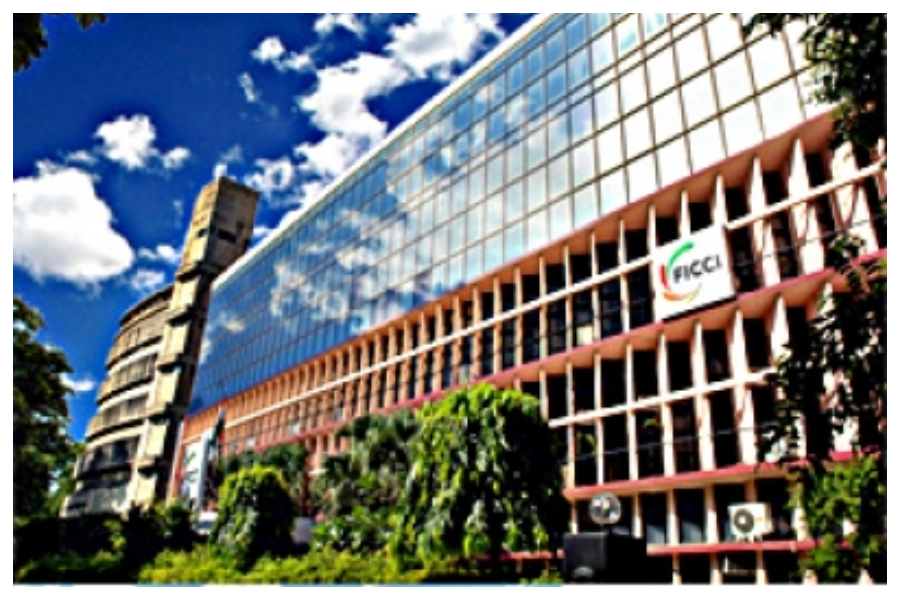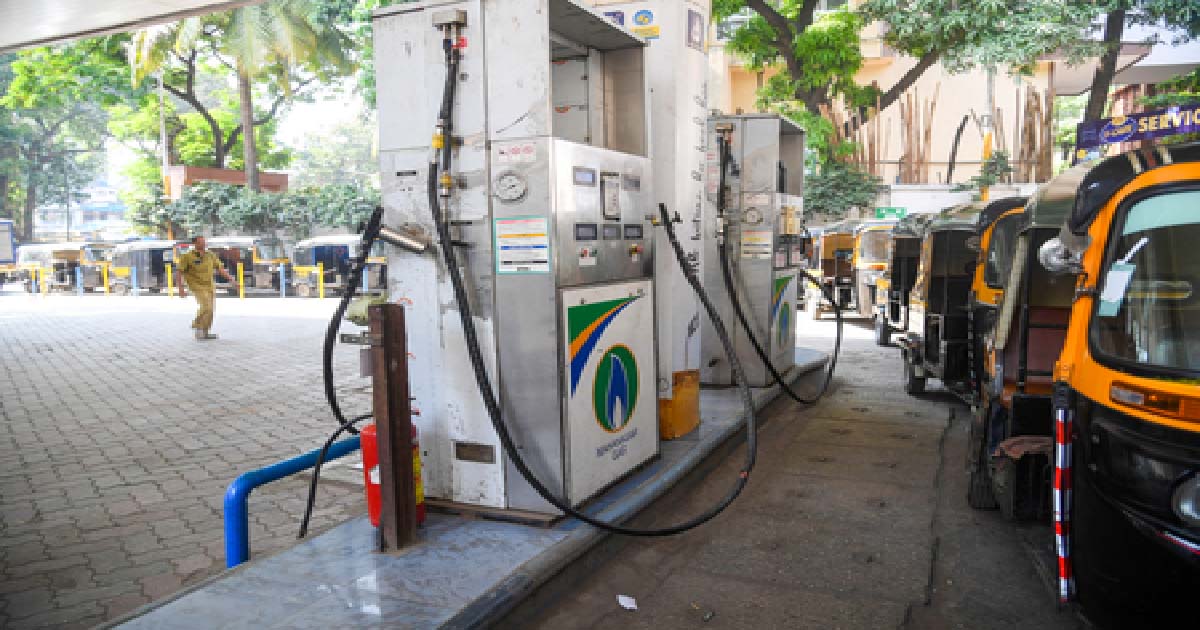Business
FICCI CASCADE to launch ‘Anti-Smuggling Day’ on Feb 11

FICCIs Committee Against Smuggling and Counterfeiting Activities Destroying the Economy (CASCADE) has taken a lead to mark the launch of Anti-Smuggling Day on February 11.
‘Anti-Smuggling Day’ will represent a major step in the fight against the global menace of smuggling. With no country immune to the impact of smuggling and no single sector can be said to be an exception, this day will highlight the mounting hazard of smuggling. It will not only call for attention for creating awareness on this issue, but will also evaluate what more needs to be done at a national and international level in mitigating this challenge.
Anil Rajput, Chairman, FICCI CASCADE said: “Illicit trade in smuggled goods is a global problem of enormous magnitude and nations are reeling under its devastating impact. Unfortunately, not enough awareness and thrust is being given to this growing threat which is not only draining our economies and leading to job losses but is also a huge risk to the security of nations worldwide. If the spread of smuggling is not checked, the consequences will be disastrous for our future generations and hence we must take a holistic view to curb this evil.”
Anti-Smuggling Day will gather momentum and will bring together policy makers, international institutions, enforcement agencies, industry members, media, and consumers and reinforce their commitment to take action to curb this scourge that is growing every year and affecting all countries.
Balesh Kumar, Member-Investigation, Central Board of Indirect Taxes and Customs; P.K Das, Director, Compliance and Facilitation Directorate, World Customs Organisation; Stefano Betti, Deputy Director-General, Transnational Alliance to Combat Illicit Trade (TRACIT); Najib Shah, Former Chairman, Central Board of Indirect Taxes and Customs; D.P. Dash, Former Pr. Director-General, DRI, Former Chairman, Enforcement Committee, World Customs Organisation (WCO) are slated to address the launch event.
As a run up to Anti-Smuggling Day, and to sensitise the youth on the menace of smuggled goods, FICCI CASCADE also organized a national Digital Art/Poster making competition on the theme, ‘Stand Against Smuggling’.
FICCI CASCADE will also felicitate the winners of the competition during the Anti-Smuggling Day event.
As per the estimates of the World Economic Forum, illicit trade resulted in an annual drain of $2.2 trillion or approximately 3 per cent of world GDP in 2020.
While nations are increasingly recognizing the dangers posed by this evil business and are intensifying their efforts to create an effective deterrence against such activities, in India, FICCI CASCADE is at the forefront of generating awareness on the detrimental impact of smuggled, contraband and counterfeit products.
As per a 2019 study by FICCI CASCADE, large scale smuggling in only 5 key industry sectors resulted in a loss of Rs 1,17,253 crore to the Indian economy and job losses to the tune of 16.36 lakhs.
With widespread smuggling of various goods, along with large quantities of the same being seized regularly, by our enforcement agencies, this illegal business will only grow in the years to come.
Business
Indian city gas distribution firms’ operating profit to rise 8-12 pc this fiscal

New Delhi, Nov 20: City gas distribution (CGD) companies in India are projected to clock an operating profit of Rs 7.2–7.5 per standard cubic metre (scm) this fiscal — up 8-12 per cent compared with the second half of last fiscal when margins dropped because of a sudden and steep decline in gas allocation under the administered price mechanism (APM) for the compressed natural gas (CNG) segment, a report said on Thursday.
Consequently, distributors had to take recourse to the spot gas market for supply, which exerted upward pressure on cost. The companies have, thereafter, transitioned to contracted supplies, which is expected to burnish margins.
“Healthy earnings will keep leverage in check despite the proposed capital expenditure (capex) by companies. Our assessment of seven CGD companies, with 70 per cent share of total sales volume last fiscal, indicates as much,” Crisil Ratings said in its report.
CGD companies get gas on priority at lower prices under the APM from legacy gas fields to serve the domestic CNG and piped natural gas-domestic (PNG-D) segments.
Beyond APM, they procure high-pressure, high-temperature (HPHT) gas and imported regasified liquefied natural gas (R-LNG) under contracted and spot purchase mechanisms.
According to the report, in the second half of the last fiscal, APM gas allocated to the CNG segment was reduced to less than 40 per cent of the total CNG requirement, compared with 70 per cent in the first half of the last fiscal.
This led to a substantial increase in gas procurement costs as companies relied on spot purchases, which were 80-100 per cent more expensive than those under APM prices, to protect against supply disruptions.
As a result, spot purchases by volume rose to more than 15 per cent of total supplies from 5 per cent in the first half of the last fiscal.
“Against the 30 per cent reduction in APM allocation for the CNG segment, CGD companies got 15-20 per cent long-term allocations from domestic new well gas, mainly towards the end of last fiscal or early this fiscal. For the balance, they have signed additional medium- and long-term contracts, mainly for HPHT gas and R-LNG,” said Ankit Hakhu, Director, Crisil Ratings.
This will not only improve gas security but also reduce exposure to the spot market, where prices are 25-30 per cent higher on average, he added.
The report noted that realisations are steady this fiscal, following some increase in the second half of last fiscal when companies implemented price hikes to pass on increased costs to consumers, albeit partially and gradually.
However, some of the benefits of reduced gas procurement costs in the current fiscal year will be offset by an increase in other operating costs. These costs will rise as players continue to incur capex to expand gas infrastructure in existing and new geographical areas (GAs) to support volume growth.
Business
Groww shares drop over 9 pc, slip below Rs 1 lakh crore market cap

Mumbai, Nov 20: Groww’s share price continued to fall for the second day in a row on Thursday as investors booked profits after the stock’s strong rally last week.
The shares slipped as much as 9 per cent during early trade, touching an intra-day low of Rs 154.10 on the National Stock Exchange (NSE).
This is a 9.29 per cent drop from the previous day’s close.
During early trade, the market value of Billionbrains Garage Ventures — Groww’s parent company — fell to Rs 97,431.70 crore, slipping below the Rs 1 lakh crore mark.
The decline follows Wednesday’s sharp fall, when the stock hit the 10 per cent lower circuit on both the BSE and NSE, ending a five-day winning streak.
It closed at Rs 169.94 on the BSE and Rs 169.89 on the NSE in the previous trading session.
On Wednesday, the exchanges also revised Groww’s price band from 20 per cent to 10 per cent, limiting how much the stock can move in a single session.
The next key event for the stock is on Friday, November 21, when the company will announce its quarterly results — its first earnings report since listing last week.
Earlier, in a filing to the stock exchanges, Groww said its Board of Directors will meet on Friday, November 21, 2025, to consider and approve the unaudited standalone and consolidated financial results for the quarter and half year ended September 30, 2025.
Another important trigger is expected on December 10, when the one-month lock-in period for shareholders ends.
Groww, founded in 2016, is currently India’s largest stockbroker with more than 12.6 million active clients and a market share of over 26 percent as of June 2025.
Business
Sensex, Nifty Open Flat, Mixed Global Cues & Lack Of Major Domestic Triggers Keep Investor Sentiment Muted

Mumbai: Indian stock markets opened flat with a slight negative trend on Wednesday as mixed global cues and a lack of major domestic triggers kept investor sentiment muted. With the Q2 FY26 earnings season coming to an end, traders showed limited enthusiasm, leaving the indices stuck in a narrow range.
The Sensex slipped 81 points, or 0.10 per cent, to 84,592 in early trade. The Nifty also declined, dropping 34 points, or 0.13 per cent, to 25,877. “The broader benchmark Nifty 50 remains range-bound after the prior session, with resistance seen around 26,000–26,050 and near-term support in the 25,800–25,750 band — a potential accumulation zone for positional traders,” experts said. “Given this setup, a selective buy-on-dips strategy remains appropriate — apply tight trailing stop-losses, and book partial profits on rallies,” analysts mentioned.
Tata Motors PV, NTPC, Bajaj Finserv, Eternal and Sun Pharma were among the major drags on the Sensex. However, gains in HUL, Infosys, TCS, Tata Steel, Tech Mahindra, and Trent helped cushion the fall and prevented a deeper decline. In the broader market, the trend remained weak. The Nifty MidCap index slipped 0.06 per cent, while the Nifty SmallCap index fell 0.23 per cent. Sector-wise, the Nifty IT index was the only notable performer, rising 0.62 per cent as technology stocks saw selective buying.
On the other hand, real estate stocks struggled, with the Nifty Realty index emerging as the biggest loser, down 0.5 per cent. Analysts said markets may continue to remain rangebound in the absence of fresh triggers and ahead of global macroeconomic developments expected later this week. “Investors should prioritise safety at this juncture. Safety is in large caps. Large segments of the mid and small cap space are overvalued having been driven up only by liquidity flows from exuberant investors,” analysts said.
-

 Crime3 years ago
Crime3 years agoClass 10 student jumps to death in Jaipur
-

 Maharashtra1 year ago
Maharashtra1 year agoMumbai Local Train Update: Central Railway’s New Timetable Comes Into Effect; Check Full List Of Revised Timings & Stations
-

 Maharashtra1 year ago
Maharashtra1 year agoMumbai To Go Toll-Free Tonight! Maharashtra Govt Announces Complete Toll Waiver For Light Motor Vehicles At All 5 Entry Points Of City
-

 Maharashtra1 year ago
Maharashtra1 year agoFalse photo of Imtiaz Jaleel’s rally, exposing the fooling conspiracy
-

 National News1 year ago
National News1 year agoMinistry of Railways rolls out Special Drive 4.0 with focus on digitisation, cleanliness, inclusiveness and grievance redressal
-

 Maharashtra1 year ago
Maharashtra1 year agoMaharashtra Elections 2024: Mumbai Metro & BEST Services Extended Till Midnight On Voting Day
-

 National News1 year ago
National News1 year agoJ&K: 4 Jawans Killed, 28 Injured After Bus Carrying BSF Personnel For Poll Duty Falls Into Gorge In Budgam; Terrifying Visuals Surface
-

 Crime1 year ago
Crime1 year agoBaba Siddique Murder: Mumbai Police Unable To Get Lawrence Bishnoi Custody Due To Home Ministry Order, Says Report












